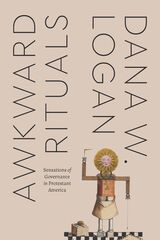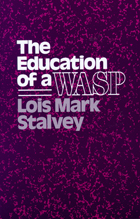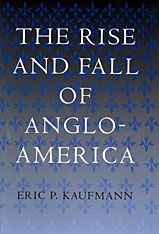
In the years between the American Revolution and the Civil War, there was an awkward persistence of sovereign rituals, vestiges of a monarchical past that were not easy to shed. In Awkward Rituals, Dana Logan focuses our attention on these performances, revealing the ways in which governance in the early republic was characterized by white Protestants reenacting the hierarchical authority of a seemingly rejected king. With her unique focus on embodied action, rather than the more common focus on discourse or law, Logan makes an original contribution to debates about the relative completeness of America’s Revolution.
Awkward Rituals theorizes an under-examined form of action: rituals that do not feel natural even if they sometimes feel good. This account challenges common notions of ritual as a force that binds society and synthesizes the self. Ranging from Freemason initiations to evangelical societies to missionaries posing as sailors, Logan shows how white Protestants promoted a class-based society while simultaneously trumpeting egalitarianism. She thus redescribes ritual as a box to check, a chore to complete, an embarrassing display of theatrical verve. In Awkward Rituals, Logan emphasizes how ritual distinctively captures what does not change through revolution.

Brimming with honestly and passion, The Education of a WASP chronicles one white woman's discovery of racism in 1960s America. First published in 1970 and highly acclaimed by reviewers, Lois Stalvey's account is as timely now as it was then. Nearly twenty years later, with ugly racial incidents occurring on college campuses, in neighborhoods, and in workplaces everywhere, her account of personal encounters with racism remains deeply disturbing. Educators and general readers interested in the subtleties of racism will find the story poignant, revealing, and profoundly moving.
“Delightful and horrible, a singular book.” —Choice
“An extraordinarily honest and revealing book that poses the issue: loyalty to one’s ethnic group or loyalty to conscience.” —Publishers Weekly

As the 2000 census resoundingly demonstrated, the Anglo-Protestant ethnic core of the United States has all but dissolved. In a country founded and settled by their ancestors, British Protestants now make up less than a fifth of the population. This demographic shift has spawned a “culture war” within white America. While liberals seek to diversify society toward a cosmopolitan endpoint, some conservatives strive to maintain an American ethno-national identity. Eric Kaufmann traces the roots of this culture war from the rise of WASP America after the Revolution to its fall in the 1960s, when social institutions finally began to reflect the nation’s ethnic composition.
Kaufmann begins his account shortly after independence, when white Protestants with an Anglo-Saxon myth of descent established themselves as the dominant American ethnic group. But from the late 1890s to the 1930s, liberal and cosmopolitan ideological currents within white Anglo-Saxon Protestant America mounted a powerful challenge to WASP hegemony. This struggle against ethnic dominance was mounted not by subaltern immigrant groups but by Anglo-Saxon reformers, notably Jane Addams and John Dewey. It gathered social force by the 1920s, struggling against WASP dominance and achieving institutional breakthrough in the late 1960s, when America truly began to integrate ethnic minorities into mainstream culture.
READERS
Browse our collection.
PUBLISHERS
See BiblioVault's publisher services.
STUDENT SERVICES
Files for college accessibility offices.
UChicago Accessibility Resources
home | accessibility | search | about | contact us
BiblioVault ® 2001 - 2024
The University of Chicago Press









